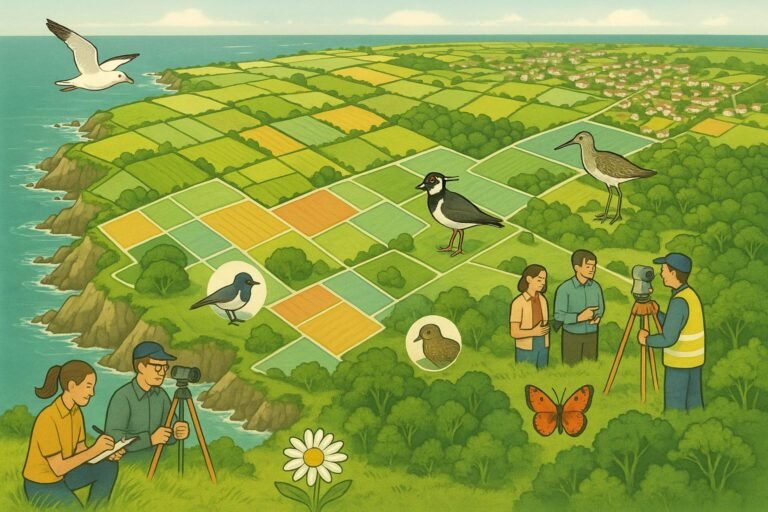Home Wind Turbines: A New Chapter in Guernsey’s Green Energy Transition
Guernsey is on the cusp of a significant renewable energy transformation, with residential wind turbines emerging as a promising component of the island’s sustainable future. The Little Green Energy Company‘s recent proposal to integrate small-scale wind energy generation into homes marks a pivotal moment in the island’s commitment to reducing carbon emissions and diversifying its energy portfolio.
The initiative comes at a critical time, following the September 2023 Electricity Strategy that sets an ambitious target of net-zero emissions by 2050. A recent demonstration of a compact 1.8-meter domestic wind turbine, capable of generating up to 500 watts, offers a tangible glimpse into the potential of household-level renewable energy production.
Perspectives on the Proposal
Proponents argue that residential wind turbines provide multiple benefits. Bob Beebe, CEO of The Little Green Energy Company, sees these turbines as a complementary technology to existing solar installations. The distributed nature of such systems could enhance energy resilience and provide residents with a direct role in sustainable energy production.
However, challenges remain. Skeptics point to potential aesthetic concerns, noise considerations, and the variability of wind conditions. The effectiveness of such small-scale turbines depends critically on local wind patterns and individual property characteristics.
Broader Context and Future Outlook
Guernsey’s approach reflects a nuanced strategy of multi-level renewable energy development. While exploring larger projects like the potential offshore wind farm – which Deputy Carl Meerveld suggests could generate significant revenue – the island is simultaneously encouraging small-scale, individual contributions.
Guernsey Electricity’s long-term vision anticipates peak electricity demand reaching 150MW by 2050. This projection underscores the necessity of a diverse and flexible renewable energy mix. Residential wind turbines could play a crucial role in meeting this challenge, offering a decentralized approach to energy generation.
Economic and Environmental Implications
The proposed wind turbine initiative represents more than a technological solution. It embodies a broader cultural shift towards community-driven sustainability. By empowering residents to become active participants in energy production, Guernsey is pioneering a model of collaborative environmental responsibility.
Conclusion
As Guernsey continues its journey towards a greener future, residential wind turbines stand as a symbol of innovative thinking and collective commitment to sustainable development. While challenges exist, the potential benefits – reduced carbon emissions, increased energy independence, and community engagement – make this an exciting chapter in the island’s renewable energy story.
The success of this initiative will depend on careful implementation, continued technological improvements, and ongoing community support. Guernsey’s approach offers a compelling case study in localized, adaptive renewable energy strategy.
Related Content
- Community Solar Array Installation in Guernsey
- About Little Green Energy Company
- Wind Turbine Demonstration Project in Guernsey






